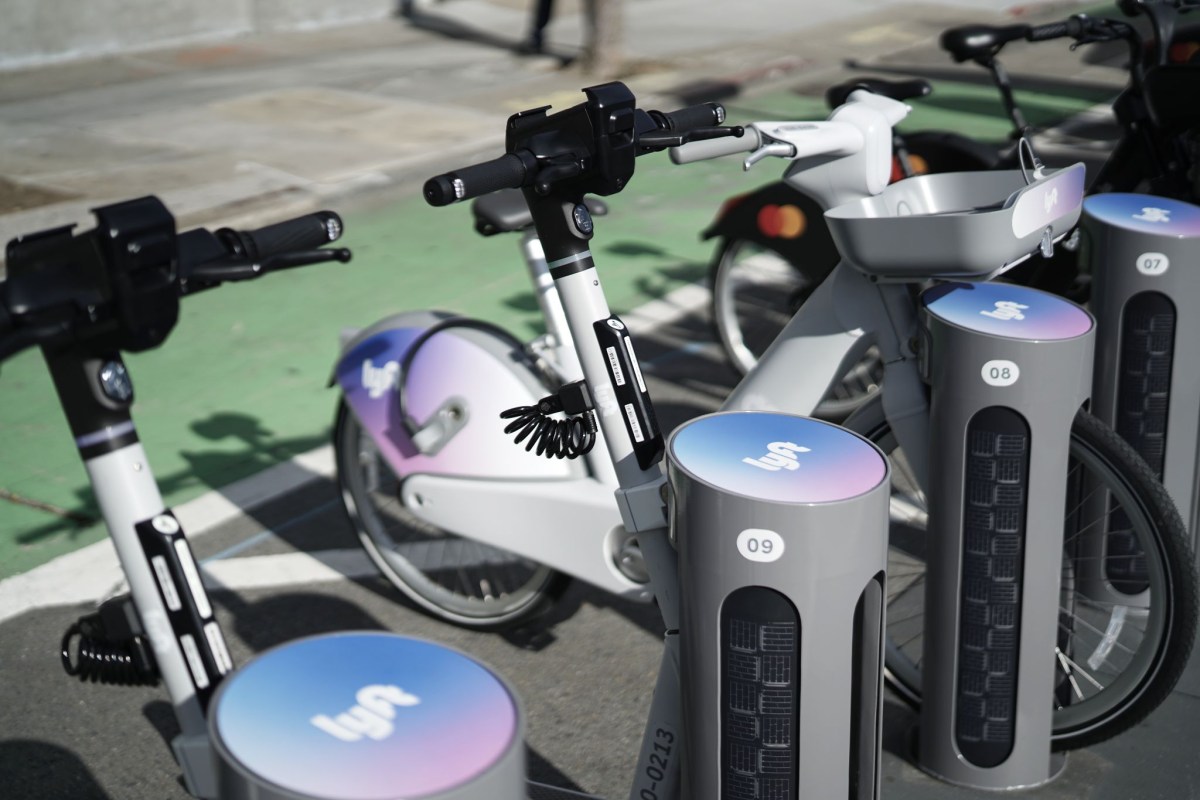In the summer of 2023, Lyft was contemplating the sale of its micromobility business after receiving strong interest from prospective buyers. Today, the ride-hail company is doubling down on its docked scooter and bikeshare operations, positioning itself as the ideal partner for cities looking to enhance their urban transportation networks.
Since acquiring shared bike and station provider PBSC Urban Solutions two years ago, Lyft has invested in building and deploying better quality e-bikes and docked e-scooters, as well as a new type of docking station that is solar-powered, modular and able to charge both bikes and scooters.
As CEO David Risher reviewed Lyft’s micromobility assets, he asked himself: “Do we sell the whole thing, or do we operate it?”
“E-bikes in particular are growing so fast globally. It would be insane not to take it on ourselves,” Risher told TechCrunch, noting Lyft’s e-bike rides increased 65% year-over-year through August to make up half of total rides. “So we said, let’s do this ourselves and bring it to the real standard of excellence that we have for our whole business.”
For Lyft, that means streamlining and integrating the two sides of its micromobility business – PBSC, which sells bikeshare-as-a-service to local operators and cities in 49 markets globally, and the eight Lyft-owned and operated bike and scooter share programs, like Citi Bike in New York City and Divvy in Chicago. The combined division will be renamed Lyft Urban Solutions, and Michael Brous, Lyft’s former head of operations, will head it up.
Risher noted the renewed focus on micromobility will also include a restructuring of its team and finances. A spokesperson for Lyft told TechCrunch less than 1% of staff on the tech side will be cut as the company shifts resources from R&D to sales, operations and deployment.
“We estimate that the ongoing benefit to the business of this restructuring is going to be on the order of $20 million a year, and it will be a net contributor to the business,” Risher said.
It’s still a small portion of the business, which in the second quarter saw revenue of $1.4 billion. But any amount helps to stay in the green – Lyft recorded an operating loss of $27 million in the quarter, much narrower than the year-ago operating loss of $159 million, and actually earned $5 million in net income, versus a net loss of $114 million in the year-ago quarter.
Lyft’s goal is to slowly update the hardware and software platforms in each city to eventually get to the point of standardization. And Lyft wants to do it in a way that focuses on a station-based, grid-connected approach. That means avoiding dockless scooters and bikes.
“We’re really focused on the docked version because it frankly helps cities organize themselves better,” Risher said. “There was a time where it was a free-for-all, let’s just put a bunch of junk on the street, but we thought we should do it in a way that works for riders but also works for cities.”
Docked bike and scooter-share also has the added benefit of giving companies like Lyft access to longer-term city partnerships, as stations end up becoming part of a city’s infrastructure.
Lyft’s dockless footprint is already small – the company operates scooters in Washington D.C. alongside its Capital Bikeshare service, as well as bikes and scooters in Denver. Lyft said in a blog post Wednesday that it would discontinue both of those services, and explore other options with Denver.
But, so as not to miss out on the dockless scooter craze, Lyft will continue to partner with Spin and, as of recently, Bird (which owns Spin) so riders can book directly through the Lyft app.
Lyft does not break out its micromobility business in quarterly or annual earnings reports, and the company would not share what percentage of its total revenue comes from shared micromobility. That said, the total number of rides Lyft recorded across micromobility and ride-hail hit 709 million in 2023, and about 56.7 million of those, or around 8%, were bike and scooter-share rides.
#Lyfts #CEO #insane #bikeshare
